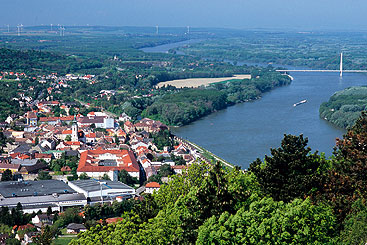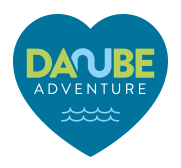Project ‘East of Vienna’: public participation for in-situ tests
Eight Danube countries participated in a specialised course to learn methods of
analysing biological quality elements that would be compliant with the EU Water
Framework Directive. Sharing this information ensures that all countries across
the basin can reach the goals of the directive.

Project ‘East of
Vienna’:
public
participation for
in-situ tests
A stalemate between supporters and adversaries of ‘East of Vienna’ now appears to be over. A series of tests for the project to develop the Danube between Vienna and the Austrian–Slovak border is now monitored and influenced by a new stakeholder forum.

Through development of the forum, Via Donau learned to refrain from being too active in steering its course.
In 2011, things looked bleak for the project ‘East of Vienna’. The administrative permission to allow even an initial set of in-situ tests was still pending. In addition, project owner Via Donau faced vicious criticism from some NGOs and local stakeholders, backed by the negative stance of Austrian media. Even once the permit was finally granted in early December, underlying trust issues continued to cast a shadow on the project. But with the new year, a more positive spirit has allowed the project to start moving.
In early 2012, initial steps towards the in-situ tests called ‘Pilotprojekt Bad Deutsch-Altenburg’ were taken; but even more importantly, Via Donau took a new approach to public participation. This new approach relies on an ambitious plan to involve civil society in both monitoring and managing the project through a stakeholder panel called ‘Akteursform’ (Stakeholder Forum). The forum consists of ten delegates: four representatives from the business and navigation sectors, four from environmental and angling NGOs, one from the Donau-Auen national park and one from the ICPDR. Delegates are supported by a panel of experts who act as an advisory board.
Forum meetings are public and observers are encouraged to share their views. The forum can give recommendations to the project owner or ask for information and make formal enquiries. Minority views are considered for enquiries to ensure no one feels overruled. The project team is obliged to respond to enquiries and recommendations in cooperation with the ecological and technical site supervision and under consideration of results from continuous monitoring. The work of the forum and project team is available online and remains open throughout the project’s implementation.
Through development of the forum, Via Donau learned to refrain from being too active in steering its course. Instead, the waterway company put its role as project owner in the background. It provides funding for forum administration and all running costs (which are transparent at the request of the forum), but the company’s representatives attend meetings only as observers.
At the initial meeting in January, forum delegates agreed their terms of reference and approved science board advisors. They requested information on the pilot project and made one point very clear: the Forum’s goal is not to ensure smooth implementation of the project, but rather to endorse dialogue and partnership, including criticism.
Meanwhile, international corporations and river commissions have expressed their interest in the forum. “We are very excited about this,” says Josef Semrad of Via Donau’s environmental department. “For years, we have dealt with so much criticism – it is good to see appreciation and a friendly interest in our work now.”
For more information, please visit: www.donau.bmvit.gv.at






